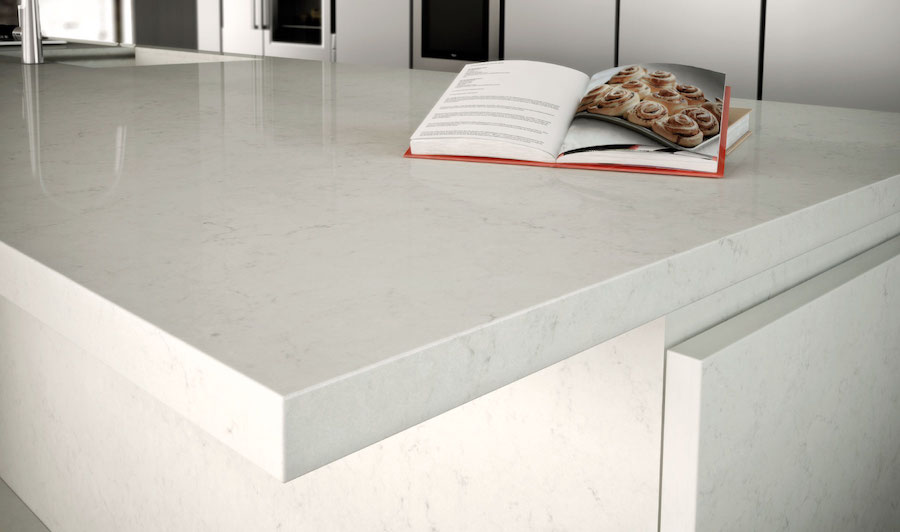Call Now: 07 578 2289

Selecting the benchtop for your new kitchen can often create a dilemma, given the wide range of materials to choose from – all with different benefits, but also disadvantages, too.
From laminate to stone, timber, stainless steel and even concrete, there’s a lot to consider when making your choice.
Your benchtop is not only a working surface but it’s also one of the key elements for bringing your new kitchen to life and making a statement about your home.
Often overlooked, there are nevertheless many advantages to laminate. No longer an “old fashioned Formica” surface, the colour and pattern choices available today are astonishing, with much improved durability. In fact, many laminates replicate the look and texture of stone. Best of all, it’s an affordable choice thanks to the inexpensive manufacturing costs.
Natural stone surfaces such as granite and marble are certainly hard, but they can also be porous, which means they may stain easily. However, these benchtops are solid and easily maintained. There’s a wide selection of colours and patterns to choose from, as well as options for a polished or matt honed finish to the stone.
Surfaces such as Caesarstone® or Quantum Quartz are another option. Appearing similar to natural stone they’re nevertheless manufactured to be more stain resistant, scratch resistant and heat resistant than their natural counterparts. Because they’re artificial there’s a vast range of colours and patterns for making a statement in your new kitchen!
Another, similar, manufactured stone option is Acrylic Stone which is manufactured from a blend of acrylic and natural minerals. It’s also non porous, as well as scratch and heat resistant however, unlike other benchtop materials, it can be moulded to form your sink and seamlessly continued with invisible joins.
For an edgier industrial feel or the professional look of a commercial kitchen, you might want to use stainless steel. It’s highly durable and versatile, and comes comes in a range of different finishes. But don’t overlook the need for regular maintenance.
Once a traditional style of benchtop, it fell out of favour because it must be sealed correctly to prevent rotting or water leaks when using it near the sink. However, with modern coatings timber is once again becoming quite popular as a feature benchtop surface. Especially when matched to a timber floor, wood has a timeless warmth and appeal.
To help you choose the most appropriate kitchen benchtop call us at Prestige Kitchens and we’ll walk you through the advantages and disadvantages of each material.
For example: